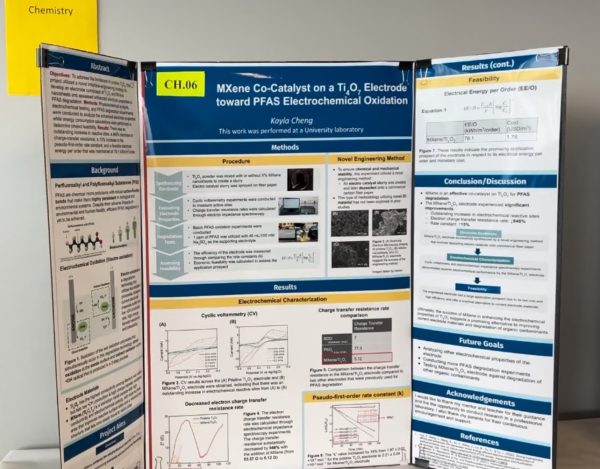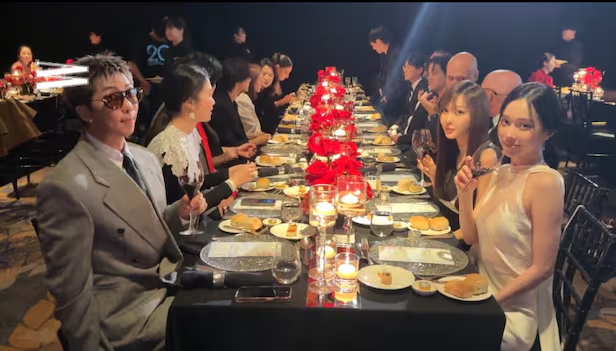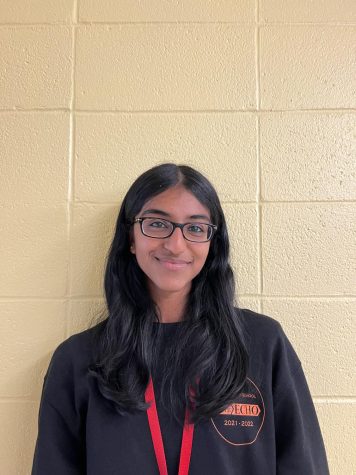In January 2024, Tenafly High School Senior Kayla Cheng published her latest project titled “Electrooxidation of Perfluorocarboxylic Acids by an Interfacially Engineered Magnéli Phase Titanium Oxide (Ti407) Electrode with MXene” in the Environmental Science & Technology Engineering Journal by the American Chemical Society. Her project aims to use an MXene/Ti4O7 electrode to degrade the highly persistent bonds of PFAS chemicals, that may otherwise remain in the environment for around 1000 years.
Her research is relevant because PFAS chemicals, or per- and poly-fluoroalkyl substances, are a group of synthetic chemicals widely used in consumer products like clothing, cookware, and cleaning products. They are harmful to the environment and have been identified in the bloodstream of over 95% of Americans. Studies have linked them to many health risks in humans, including cancers, reproductive harm, and hormone interference.
She conducted this research under the guidance of her mentor, Mr. Qinquan Ma from the New Jersey Institute of Technology. She was motivated to explore this field because she wanted to become aware of the constant changes in our environment. “Understanding the ramifications of current industrial developments on our planet inspires me to seek solutions for a greener future,” she said. Her experiment was conducted over several months, and the publication process involved data analysis, drafting, and making necessary revisions, which took over a year to complete. “The hardest, but arguably most rewarding, part of conducting the research was the countless failures I encountered,” Cheng said. One challenge she encountered was when she tried to synthesize the membrane by pressing the powder of the electrocatalysts, but it was too fragile during experimentation. “In a way, you can never ‘fail’ when you conduct research because there’s always something you can gain from every experiment and project,” Cheng said.
Cheng submitted her project to multiple competitions and won many awards. She received the Water Foundation Environment Award, Stockholm Junior Water Prize, New Jersey Institute of Technology Fellowship Award, Second Place Chemistry Award at the Terra North Jersey Science Fair, Second Place Chemistry/Biochemistry Award at the New Jersey Academy of Science, National Delegate from the American Junior Academy of Science, and the Society of Women Engineers Certificate of Merit (2023). “Kayla designing an experiment, performing an experiment, and interpreting and processing the results was impressive,” Mr. Brandstaedter, her science research teacher, said. Although he recognizes that independent learning is a critical skill for students to gain from education, there aren’t enough opportunities for students to develop it. He is proud of the hard work and determination that she poured into her work.

In the future, her research can be utilized to examine the efficiency of the synthesized electrode against other organic contaminants. This would allow for a broader application in the potential degradation of various pollutants, beyond just PFAS chemicals. This fall, Cheng will be attending Columbia University to pursue chemistry. She hopes to explore her interests in other fields like environmental engineering and finance.
Reflecting on her achievements, Cheng recognizes the importance of asking questions, not just finding answers. “Half of the research will be centered around what problem you decide to identify — ask yourself: what is important to investigate and why?” she said. Another piece of advice she has for current science research students is to focus on presenting your best work. “While presenting your work for competitions or the symposium is undeniably important, dedicating yourself to learning the material will always come first.” To incoming science research students, she wants to reassure them that it is okay to ask for help. “Although it can feel intimidating when you are surrounded by experts and experienced upperclassmen, research is a process, not a destination,” she said.
Thank you Kayla for your contributions to our science research program at Tenafly High School. You are an inspiration to current students to proactively nurture their curiosities, and we wish you the best in college and beyond.
Anyone interested in reading Kayla’s publication, please click on this link: https://pubs.acs.org/doi/abs/10.1021/acsestengg.3c00571.

















































































































































